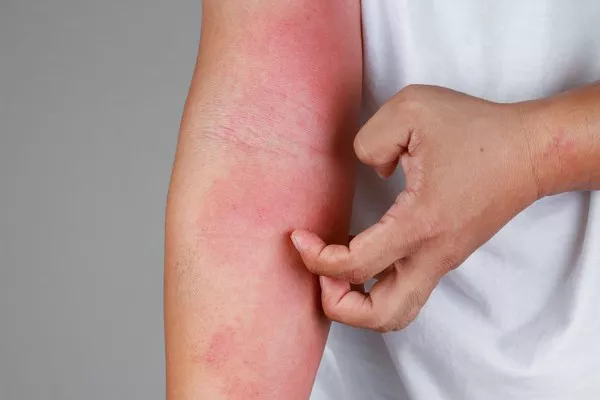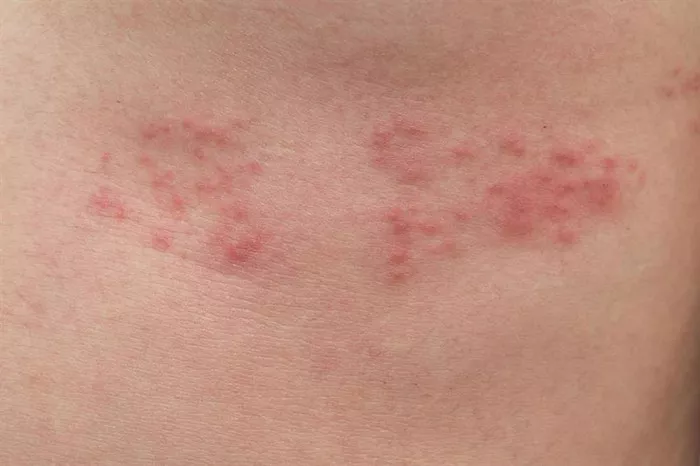Eczema is a common skin condition that causes redness, inflammation, and itching. It affects people of all ages, and while it’s not curable, there are many effective ways to manage the symptoms and reduce flare-ups. Whether you’re dealing with eczema for the first time or you’ve been living with it for years, understanding how to manage it can help you lead a more comfortable and confident life. In this article, we’ll explore various methods to beat eczema, including skincare routines, lifestyle changes, medical treatments, and natural remedies.
Understanding Eczema: What Is It?
Eczema, also known as atopic dermatitis, is a condition where the skin becomes inflamed, itchy, dry, and sometimes cracked. While the exact cause of eczema isn’t fully understood, it’s believed to result from a combination of genetic and environmental factors. People with eczema often have a weakened skin barrier, which makes it harder for the skin to retain moisture and protect itself from irritants and allergens.
Eczema can vary in severity, from mild irritation to more severe flare-ups that affect large areas of the skin. It often occurs on the hands, feet, face, elbows, or behind the knees, but it can appear anywhere on the body. The symptoms of eczema tend to worsen with triggers such as stress, certain foods, environmental factors, or harsh skincare products.
Key Triggers of Eczema
While the exact cause of eczema remains unclear, certain factors are known to trigger flare-ups. Identifying and avoiding these triggers is an important step in managing the condition. Common triggers include:
Irritants: Harsh soaps, detergents, and chemicals in cleaning products can cause irritation. Even certain fabrics like wool or synthetic materials can aggravate the skin.
Allergens: Dust mites, pollen, pet dander, and mold are common allergens that can trigger eczema symptoms.
Weather: Extreme weather conditions, especially cold and dry air, can cause the skin to lose moisture and become more prone to irritation.
Stress: Emotional stress can worsen eczema symptoms, leading to flare-ups. It’s essential to find effective ways to manage stress.
Infections: Bacterial, viral, or fungal infections can lead to or worsen eczema outbreaks, particularly if the skin is scratched and damaged.
Dietary factors: Certain foods like dairy, nuts, or gluten may trigger eczema in some people, though this varies from person to person.
Creating a Skincare Routine for Eczema
One of the most important steps in managing eczema is maintaining a good skincare routine. Moisturizing regularly and avoiding products that irritate the skin can help soothe eczema symptoms and prevent flare-ups. Here’s how to create a skincare routine:
Moisturize Frequently: Keeping your skin hydrated is key to managing eczema. Use a thick, fragrance-free moisturizer or emollient several times a day, especially after bathing. Look for products that contain ingredients like ceramides, hyaluronic acid, or petrolatum, which help lock in moisture and repair the skin barrier.
Choose Gentle Cleansers: Use mild, soap-free cleansers that don’t strip the skin of its natural oils. Avoid products with strong fragrances, as they can irritate sensitive skin. Opt for creams or oils instead of foaming cleansers, which tend to be drying.
Avoid Scratching: It’s tempting to scratch itchy eczema patches, but doing so can worsen the irritation and lead to skin damage or infection. Try using cool compresses or taking short, lukewarm baths to soothe itching. If necessary, apply corticosteroid creams or antihistamines as recommended by your doctor.
Take Short, Lukewarm Showers: Hot water can dry out the skin and worsen eczema. Keep showers short and use lukewarm water. After showering, gently pat the skin dry with a towel and apply moisturizer immediately to lock in moisture.
Wear Soft, Breathable Clothing: Tight or rough fabrics can irritate eczema-prone skin. Opt for loose-fitting, soft clothing made from natural fibers like cotton. Avoid wool or synthetic materials, which can cause itching.
Lifestyle Changes to Help Beat Eczema
In addition to a good skincare routine, certain lifestyle changes can help you manage eczema more effectively. These include:
Identify and Avoid Triggers: As mentioned earlier, eczema can be triggered by various factors, including irritants, allergens, and stress. Keeping a diary to track your flare-ups and identify patterns can help you pinpoint what’s triggering your eczema. Once you know your triggers, try to avoid or minimize exposure to them.
Manage Stress: Stress is a common eczema trigger, and finding ways to relax is essential. Practice relaxation techniques like deep breathing, meditation, or yoga. Regular physical activity, such as walking or swimming, can also reduce stress and improve overall health.
Stay Hydrated: Drinking enough water helps keep your skin hydrated from the inside out. Aim to drink at least eight glasses of water a day, especially during the winter months when the air is dry.
Healthy Diet: Eating a balanced diet rich in fruits, vegetables, healthy fats, and lean proteins can support your skin’s health. If you suspect certain foods trigger your eczema, consider eliminating them from your diet and consulting with a healthcare professional for guidance.
Sleep Well: Eczema can worsen when you’re tired or stressed. Aim for 7-9 hours of quality sleep each night to help your body recover and keep your immune system functioning properly.
Medical Treatments for Eczema
When lifestyle changes and skincare routines aren’t enough, medical treatments may be necessary to control eczema. There are several options available, including topical treatments, oral medications, and light therapy. Always consult with your healthcare provider before starting any new treatments.
Topical Steroids: Corticosteroid creams or ointments are commonly prescribed to reduce inflammation and itching. They come in various strengths, and your doctor will determine which one is right for you based on the severity of your eczema. While effective, corticosteroids should be used as directed to avoid potential side effects, such as skin thinning.
Topical Calcineurin Inhibitors: These non-steroidal medications, such as tacrolimus and pimecrolimus, are used to suppress the immune system and reduce inflammation. They are often prescribed for sensitive areas like the face and eyelids, where steroid creams may be less suitable.
Antibiotics: If eczema becomes infected due to scratching, your doctor may prescribe oral or topical antibiotics to treat the infection.
Oral Antihistamines: Antihistamines can help reduce itching, especially at night. These medications block the effects of histamine, a substance released during allergic reactions that causes itching.
Phototherapy (Light Therapy): In some cases, doctors may recommend light therapy, which involves exposing the skin to ultraviolet (UV) light under controlled conditions. This treatment can help reduce inflammation and improve eczema symptoms.
Natural Remedies for Eczema
Many people with eczema seek out natural or alternative remedies to help soothe their skin. While these remedies may not work for everyone, some individuals find relief with natural treatments. Always speak with a healthcare provider before trying new treatments, especially if you have sensitive skin or allergies.
Coconut Oil: Coconut oil contains fatty acids that can help moisturize the skin and reduce inflammation. Applying virgin coconut oil to eczema-affected areas may help soothe dryness and itching.
Aloe Vera: Aloe vera gel has cooling properties and can help calm irritated skin. It is often used to treat burns, but it may also provide relief from eczema flare-ups.
Oatmeal Baths: Adding colloidal oatmeal to a lukewarm bath can help relieve itching and inflammation. Oatmeal has natural anti-inflammatory properties and can create a protective layer over the skin.
Tea Tree Oil: Tea tree oil has antimicrobial and anti-inflammatory properties. Diluting it with a carrier oil like coconut oil and applying it to the skin may help reduce eczema symptoms.
Probiotics: Some studies suggest that taking probiotics may help balance the gut microbiome and improve eczema symptoms. Probiotics are found in foods like yogurt, kefir, and fermented vegetables, or they can be taken as supplements.
Final Thoughts: Managing Eczema for a Better Quality of Life
While eczema can be challenging to live with, there are many ways to manage the condition effectively. A combination of proper skincare, lifestyle changes, stress management, and medical treatments can significantly improve your symptoms and help you live more comfortably. Always consult with a dermatologist or healthcare professional to create a personalized plan that works for your specific needs.
With the right approach, it is possible to manage eczema and reduce its impact on your daily life. Stay patient, consistent, and proactive in your treatment plan, and remember that you’re not alone in your journey to healthier, happier skin.
Related topics:

























